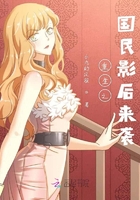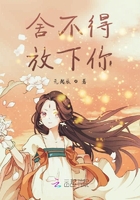She wrote the letter with much study and deliberation; her dread of its being read by the Senora was so great, that it almost paralyzed her pen as she wrote. More than once she destroyed pages, as being too sacred a confidence for unloving eyes to read. At last, the day before the fete, it was done, and safely hidden away. The baby's white robe, finely wrought in open-work, was also done, and freshly washed and ironed. No baby would there be at the fete so daintily wrapped as hers; and Alessandro had at last given his consent that the name should be Majella. It was a reluctant consent, yielded finally only to please Ramona; and, contrary to her wont, she had been willing in this instance to have her own wish fulfilled rather than his. Her heart was set upon having the seal of baptism added to the name she so loved; and, "If I were to die," she thought, "how glad Alessandro would be, to have still a Majella!"
All her preparations were completed, and it was yet not noon. She seated herself on the veranda to watch for Alessandro, who had been two days away, and was to have returned the previous evening, to make ready for the trip to Saboba. She was disquieted at his failure to return at the appointed time. As the hours crept on and he did not come, her anxiety increased. The sun had gone more than an hour past the midheavens before he came. He had ridden fast; she had heard the quick strokes of the horse's hoofs on the ground before she saw him. "Why comes he riding like that?" she thought, and ran to meet him. As he drew near, she saw to her surprise that he was riding a new horse. "Why, Alessandro!" she cried. "What horse is this?"
He looked at her bewilderedly, then at the horse. True; it was not his own horse! He struck his hand on his forehead, endeavoring to collect his thoughts. "Where is my horse, then?" he said.
"My God! Alessandro," cried Ramona. "Take the horse back instantly. They will say you stole it."
"But I left my pony there in the corral," he said. "They will know I did not mean to steal it. How could I ever have made the mistake?
I recollect nothing, Majella. I must have had one of the sicknesses."
Ramona's heart was cold with fear. Only too well she knew what summary punishment was dealt in that region to horse-thieves.
"Oh, let me take it back, dear!" she cried, "Let me go down with it.
They will believe me."
"Majella!" he exclaimed, "think you I would send you into the fold of the wolf? My wood-dove! It is in Jim Farrar's corral I left my pony. I was there last night, to see about his sheep-shearing in the autumn. And that is the last I know. I will ride back as soon as I have rested. I am heavy with sleep."
Thinking it safer to let him sleep for an hour, as his brain was evidently still confused, Ramona assented to this, though a sense of danger oppressed her. Getting fresh hay from the corral, she with her own hands rubbed the horse down. It was a fine, powerful black horse; Alessandro had evidently urged him cruelly up the steep trail, for his sides were steaming, his nostrils white with foam. Tears stood in Ramona's eyes as she did what she could for him. He recognized her good-will, and put his nose to her face. "It must be because he was black like Benito, that Alessandro took him," she thought. "Oh, Mary Mother, help us to get the creature safe back!" she said.
When she went into the house, Alessandro was asleep. Ramona glanced at the sun. It was already in the western sky. By no possibility could Alessandro go to Farrar's and back before dark.
She was on the point of waking him, when a furious barking from Capitan and the other dogs roused him instantly from his sleep, and springing to his feet, he ran out to see what it meant. In a moment more Ramona followed,-- only a moment, hardly a moment; but when she reached the threshold, it was to hear a gun-shot, to see Alessandro fall to the ground, to see, in the same second, a ruffianly man leap from his horse, and standing over Alessandro's body, fire his pistol again, once, twice, into the forehead, cheek. Then with a volley of oaths, each word of which seemed to Ramona's reeling senses to fill the air with a sound like thunder, he untied the black horse from the post where Ramona had fastened him, and leaping into his saddle again, galloped away, leading the horse. As he rode away, he shook his fist at Ramona, who was kneeling on the ground, striving to lift Alessandro's head, and to stanch the blood flowing from the ghastly wounds. "That'll teach you damned Indians to leave off stealing our horses!" he cried, and with another volley of terrible oaths was out of sight.
With a calmness which was more dreadful than any wild outcry of grief, Ramona sat on the ground by Alessandro's body, and held his hands in hers. There was nothing to be done for him. The first shot had been fatal, close to his heart,-- the murderer aimed well; the after-shots, with the pistol, were from mere wanton brutality. After a few seconds Ramona rose, went into the house, brought out the white altar-cloth, and laid it over the mutilated face. As she did this, she recalled words she had heard Father Salvierderra quote as having been said by Father Junipero, when one of the Franciscan Fathers had been massacred by the Indians, at San Diego. "Thank God." he said, "the ground is now watered by the blood of a martyr!"
"The blood of a martyr!" The words seemed to float in the air; to cleanse it from the foul blasphemies the murderer had spoken.
"My Alessandro!" she said. "Gone to be with the saints; one of the blessed martyrs; they will listen to what a martyr says." His hands were warm. She laid them in her bosom, kissed them again and again. Stretching herself on the ground by his side, she threw one arm over him, and whispered in his ear, "My love, my Alessandro!
Oh, speak once to Majella! Why do I not grieve more? My Alessandro! Is he not blest already? And soon we will be with him!















